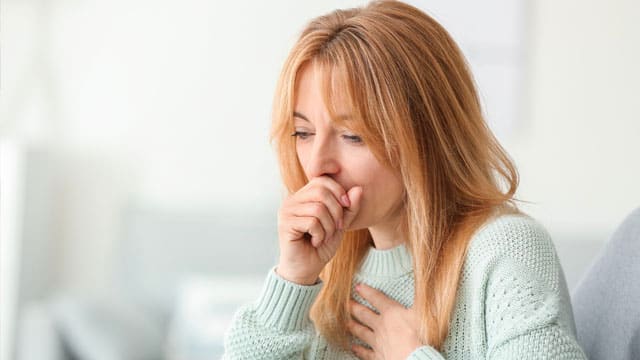How post-nasal drip affects your health
A post-nasal drip is natural and healthy for the body. Producing clear, odorless mucus is a natural process that keeps your throat moist and healthy. However, if the body creates too much mucus, you may feel a tickle in the throat and cough to clear it. If an overproduction of mucus becomes persistent, it may indicate a sinus infection, allergies, or another illness.
Does post-nasal drip cause bad breath?
It is a common misconception that bad breath is the direct result of post-nasal drip. However, symptoms often accompany a drip, such as an infection or the common cold, contributing to bad breath. Often, medications for viruses and other symptoms can cause dry mouth, which increases foul breath because your mouth needs moisture to remove bacteria.
The most common causes of bad breath
The truth is that bad breath from throat mucus is uncommon. There are a variety of factors that can cause bad breath:
- Strong smelling food, such as onions or garlic
- Smoking tobacco
- Drinking alcohol
- Poor oral hygiene
- Dry mouth
- Medical conditions
Reducing post-nasal drip
If you feel unwell, such as sneezing, coughing, or aches, post-nasal drip may be a symptom of a head cold or other illness. If you feel fine, except you noticed more mucus in the back of your throat, you can reduce the discomfort with these tips:
- Sleeping with your head slightly elevated to promote drainage.
- Avoiding foods and beverages immediately before bedtime
- Avoiding dairy, especially before bedtime
How to prevent bad breath
Brushing your teeth and cleaning in between your teeth is critical for fighting bad breath. Proper oral hygiene will remove plaque and food debris from your mouth, leaving you feeling minty fresh. Lack of saliva or dry mouth can contribute to bad breath. To ensure your mouth is moist, you can use mouthwash or sipping water throughout the day.
Sometimes, bad breath and post-nasal drip can be signs of allergies or sinus infections. Listen to your body, use these tips to reduce bad breath, and reduce the discomfort of post-nasal drip. And don't hesitate to talk to your physician, dentist, or dental hygienist about bad breath and post-nasal drip if you're concerned.
Oral Care Center articles are reviewed by an oral health medical professional. This information is for educational purposes only. This content is not intended to be a substitute for professional medical advice, diagnosis or treatment. Always seek the advice of your dentist, physician or other qualified healthcare provider.
ORAL HEALTH QUIZ
What's behind your smile?
Take our Oral Health assessment to get the most from your oral care routine
ORAL HEALTH QUIZ
What's behind your smile?
Take our Oral Health assessment to get the most from your oral care routine















